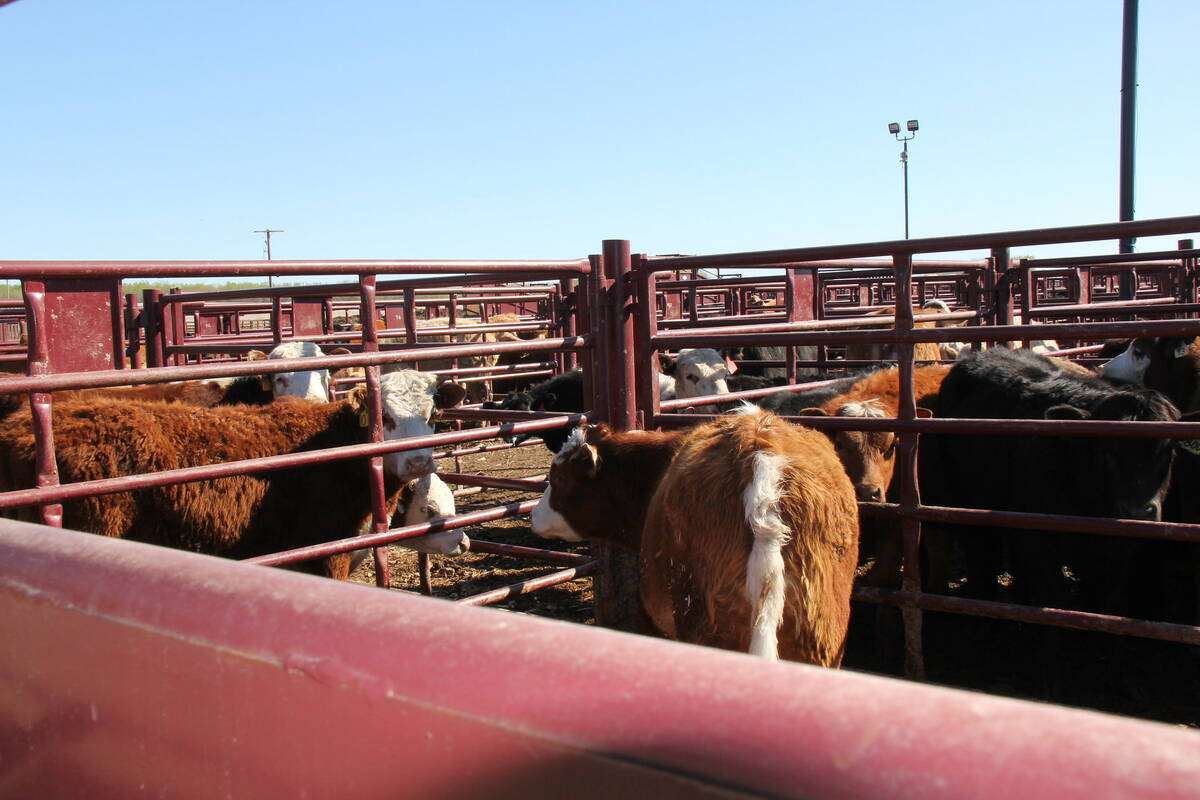Hogs, sheep, goats and cattle are subject to random tests at competition
DENVER, Colo. — Cheaters beware.
Staff at the National Western Stock Show are serious about keeping things honest at livestock events, especially the youth events.
Among the prohibited practices are giving animals drugs not approved for that species or deliberately enhancing their animals with steroids, other medication or treatments such as tubing with ginger ale to make them look full and stand square in the show ring.
“None of that stuff is allowed,” said Erin Dorsey of the stock show, which was held Jan. 10-15 in Denver.
Read Also

Livestock movement scanner looks for proving ground
The Canadian Cattle Identification Agency (CCIA) will test new technology intended to simplify the recording of animal movements, linked to proposed federal livestock traceability regulations.
The penalties vary depending on the infraction. The well-being test unit conducts random checks throughout the barns for the open shows and pays special attention to the junior hog, sheep, goat and cattle shows.
Urine samples are collected from the first and second place winners and sent to a laboratory in Denver for testing. Junior entrants must turn in quality assurance forms to the exhibition veterinarian, which promise that they have not used drugs or other enhancements on their animals. Urine samples are signed off by an adult and the youth entrant.
Dorsey said the show veterinarian provides documentation for the exhibitor if an animal actually needs treatment.
Most larger shows are starting to monitor animal welfare and exhibitor behaviour.
“We are one of the first ones, as far as a national show, to do it to the extent we do it now. A lot of state shows have followed our lead,” said Dorsey.
“Denver is one of the most prestigious shows in the country to win.”
The temptation may be strong to enhance an animal to win first place or cash prizes, but many of the exhibitors come to the show through 4-H, Future Farmers of America or other youth programs, where they are taught ethics.
“They should know better in everything they do,” Dorsey said.
The youth events at Denver are terminal shows, in which the animals are sent to a packing plant afterward. The plants do not do further testing unless an inspector notices something wrong.
The top six winners of each class move on for further competitions for scholarships, and a youth auction at the end of the show promises big money for champion animals.
Last year’s grand champion steer at the stock show sold for $132,000, and the grand champion hog bid was $30,000.
Welfare is also considered.
Goats and sheep are allowed to wear a special mask for protection because they will nibble on wood shavings in the pens. A sheep once gorged on wood shavings during a state fair and suffocated.
barbara.duckworth@producer.com















